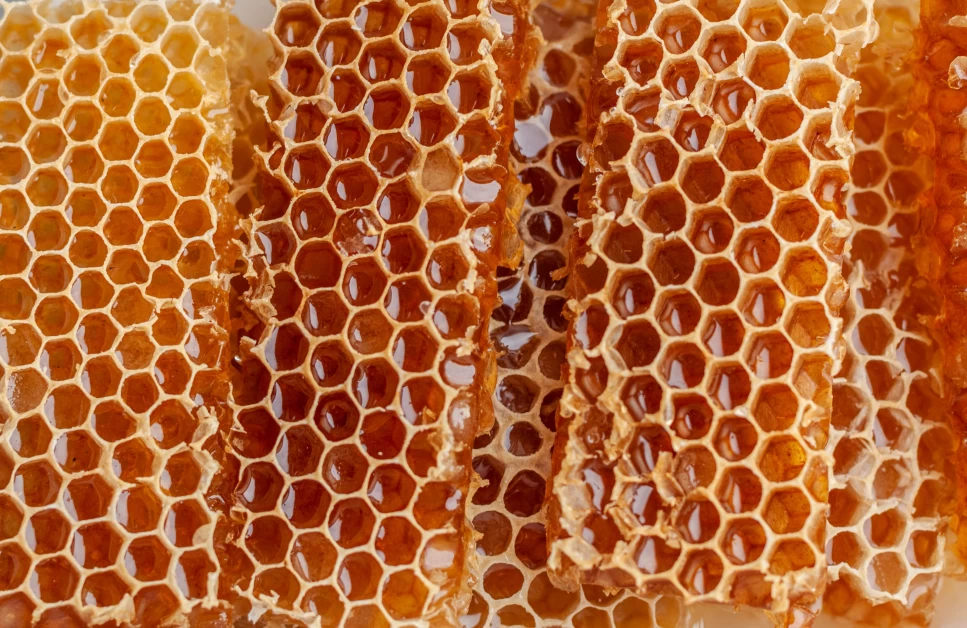Table of Contents
Manuka honey has long been known for its medicinal properties, and now researchers are investigating its potential use in resisting bacterial infection and promoting bone growth. The bones of the face and skull can be affected by various conditions, such as cleft palate defects, traumatic injuries, cancer, and bone loss from dentures. While bone replacements are commonly used to regenerate missing tissue, they are susceptible to bacterial infection. This new study aims to explore whether manuka honey, derived from tea trees, can offer a solution to this problem.
Bone Implants and Infections
Bone implants account for a significant percentage of hospital-contracted infections, which can hinder the healing process. These implants are typically made from biomaterials that contain extracellular matrix components, which provide structural support to cells. However, the study of bone defects and infections often involves the use of metal implants or synthetic polymers, creating a gap in our understanding of how biomaterials behave when infected.
Investigating the Effect of Manuka Honey
To bridge this gap in knowledge, researchers used collagen scaffolds to study the potential of manuka honey in inhibiting the growth of two bacteria commonly found in bone wounds: Pseudomonas aeruginosa and Staphylococcus aureus. The team explored two methods of incorporating manuka honey into the scaffolds: incorporation and soaking. In the first method, honey was added to a collagen suspension and blended together to create scaffolds with honey embedded in their structure. In the second method, pre-prepared collagen scaffolds were soaked in manuka honey for 40 hours. Both approaches were tested to determine their impact on bone growth and bacterial infection.
Promoting Bone Growth
The researchers focused on characterizing the response of mesenchymal stem cells, which play a crucial role in bone repair as they differentiate to create bone. Through their experiments, the team discovered that when the scaffolds were soaked in 5% honey, there was a higher level of mineral formation and osteoprotegerin production, indicating increased bone production. However, higher concentrations of honey led to a decrease in bone health. Surprisingly, the scaffolds that were soaked in honey performed better than those with honey incorporated, although the reason for this remains unclear.
Inhibiting Bacterial Growth
Another aspect of the study involved investigating whether manuka honey could inhibit the growth of P. aeruginosa and S. aureus. Paper discs were soaked in different concentrations of honey and added to bacterial lawns. However, none of the concentrations were able to prevent bacterial growth. Even the honey-soaked scaffolds did not effectively prevent bacterial growth, although the bacteria were unable to attach to these surfaces.
Antibiotic Resistance
The researchers initially hoped that the addition of antibiotics would help inhibit bacterial growth. However, they were surprised to find that they needed ten times the usual amount of antibiotics to kill the bacteria, and some bacteria still survived. This highlights the potential problem of antibiotic resistance and the challenge of eradicating bacteria within a scaffold structure.
Future Research and Implications
Marley Dewey, the first author of the paper, hopes to establish her own lab to further investigate how biomaterials can be used to prevent infection. Her research aims to create models that can be used to study implant infection and understand how bacteria interact with cells within scaffolds. This study was made possible with the help of the IGB themes and the expertise of Alan Collins, a member of IGOH, who assisted with the bacterial culture work.
The research on manuka honey’s potential in resisting bacterial infection and promoting bone growth opens up new possibilities for the field of biomaterials. By exploring nature-derived materials as alternatives to antibiotics, researchers aim to overcome the problem of antibiotic resistance. Although this study did not find the desired results in inhibiting bacterial growth, it offers valuable insights into the behavior of biomaterials when infected. With further research and understanding, manuka honey may prove to be a valuable resource in promoting bone health and preventing infections in bone implants.
Disclaimer: The information in this article is not intended or implied to be a substitute for professional medical advice, diagnosis, or treatment. All content, including text, graphics, images, and information, contained in this article is for general information purposes only.



